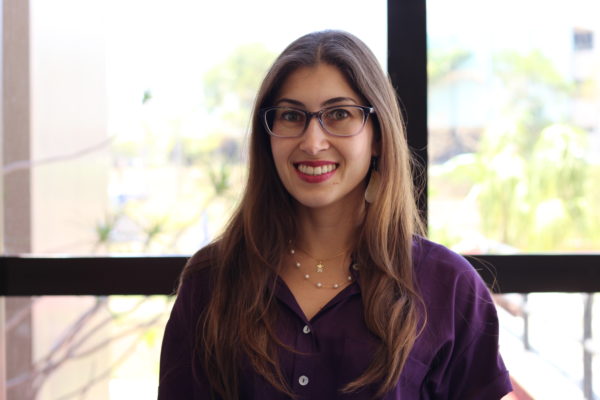São Paulo – To contribute to developing countries and spread knowledge to other regions, the Dom Cabral Foundation (FDC) will survey Moroccan companies’ internationalization in partnership with the Africa Business School (ABS). ABS is the business school of Mohammed VI University and is located in Rabat, the capital city of Morocco. FDC is considered the best business school in Latin America by the Financial Times and is based in Nova Lima, in the Brazilian state of Minas Gerais (pictured above).
ANBA interviewed the foundation’s Ph.D. professor, Lívia Barakat, who said the FDC has been glancing at the African market for some time. “We have some similarities in terms of the level of development and challenges we face as a developing country. The FDC considers we have a mission to contribute to the expansion and greater competitiveness of markets similar to ours, to take the knowledge we generate, the methodologies we have to other countries that may benefit from it,” she said.
Created in 2006, the FDC’s International Business and Strategy Center study evaluates Brazilian companies’ internationalization. “As companies qualify to operate in the international market, they gain strength, competitiveness, attract more talent, and contribute to the country’s development as a whole,” said the professor of Syrian descent. The survey in Brazil used to be annual and is now biennial, supported by the Brazilian Trade and Investment Promotion Agency (ApexBrasil).
The FDC research has already been carried out in other countries, such as Portugal and India. Based on comparative analyses, the idea is to draw parallels between the success stories of Moroccan and Brazilian companies to inspire new ways of operating abroad.

The Paths to Internationalization of Moroccan Companies Research is unprecedented and will include companies of all sizes and sectors at different levels of internationalization maturity, including exporters. “Particularly, with the new technologies, the digitalization the pandemic brought, companies have changed a little the way they go international, because of these communication facilitations, all of this has facilitated the entry of companies into other markets, borders are more fluid,” said Barakat.
The professor responsible for the study in Brazil said the foundation was approached by the ABS, a relatively young business school in Morocco that is growing and contributing to expanding companies in the Arab country. “At the same time, Morocco is trying to position itself as a technology development hub. It has also been trying to encourage companies to go international, diversify their operations to other markets, become a reference, a leading market for North Africa,” she contextualized.
According to Barakat, this panorama matches the goal of the research: to sensitize companies, bring awareness, create and provide tools for companies to assess their internationalization process, and identify the struggles to move forward.
Employing FDC’s methodology, the ABS will conduct the research with Moroccan companies. In return, the foundation will have access to the data and thus be able to carry out comparative analyses and learn about successful cases of Moroccan companies that can inspire Brazilian companies and vice versa. “It is a mutual win-win partnership, exchanging knowledge, in which we intend to help companies to advance in their internationalization strategies,” said Barakat.
When participating in the survey, each company will receive an individual report with its result compared to the average of participants. “This is our way of returning value to the company that provides its data,” she said.
About the research
The study will take place through an online platform that brings a series of questions to indicate the degree of maturity in the company’s internationalization process in six dimensions, said the professor. “We use the FDC International Value Creation Model, which considers the internationalization goals, the company’s value proposition for foreign markets, business model, organizational model, which is its internal structure, talent management, company leadership, and stakeholder management, which is going abroad, not only relating to customers and suppliers but also getting to know who the stakeholders are, how the company relates to the community, business entities, governments, and local media of these new markets,” she said.
From these six dimensions, the company will answer straightforward questions based on data and numbers and more subjective questions based on perception. The number of English speakers in the company in relation to the total number of employees and the investment in internationalization concerning the company’s total investment are examples of objective questions to indicate the degree of maturity of internationalization.
The survey will be launched on Tuesday (7) in a webinar open to the public at 10:00 am BRT. From the ABS, professor Márcio Amaral-Baptista is the research coordinator. The study will be released later this year.
Moroccan companies
It is known in the Moroccan market fertilizers represent 15% of GDP. Fertilizer companies and other sectors such as technology, tourism, agriculture, the textile industry, mining, and shipbuilding will participate in the survey. According to Barakat, the country has invested heavily in renewable energy, information technology, sustainable tourism, and organic agriculture.
“In smaller countries, companies don’t have much more room to grow in the domestic market and continue growing; they need to go international. For some, it is a question of survival, of finding a market for their products. Here in Brazil, the market is so big most companies don’t even think about going international,” said the professor. She believes the study will show Morocco has many more internationalized companies than Brazil, proportionally.
Lívia Barakat is a professor at the FDC, a researcher of the Strategy and International Business Center, a coordinator of the FDC Paths to Internationalization of Brazilian Companies Research, a Ph.D. in International Business from Copenhagen Business School, and a Master and Bachelor of Business Administration from the Federal University of Minas Gerais (UFMG).
Translated by Elúsio Brasileiro




